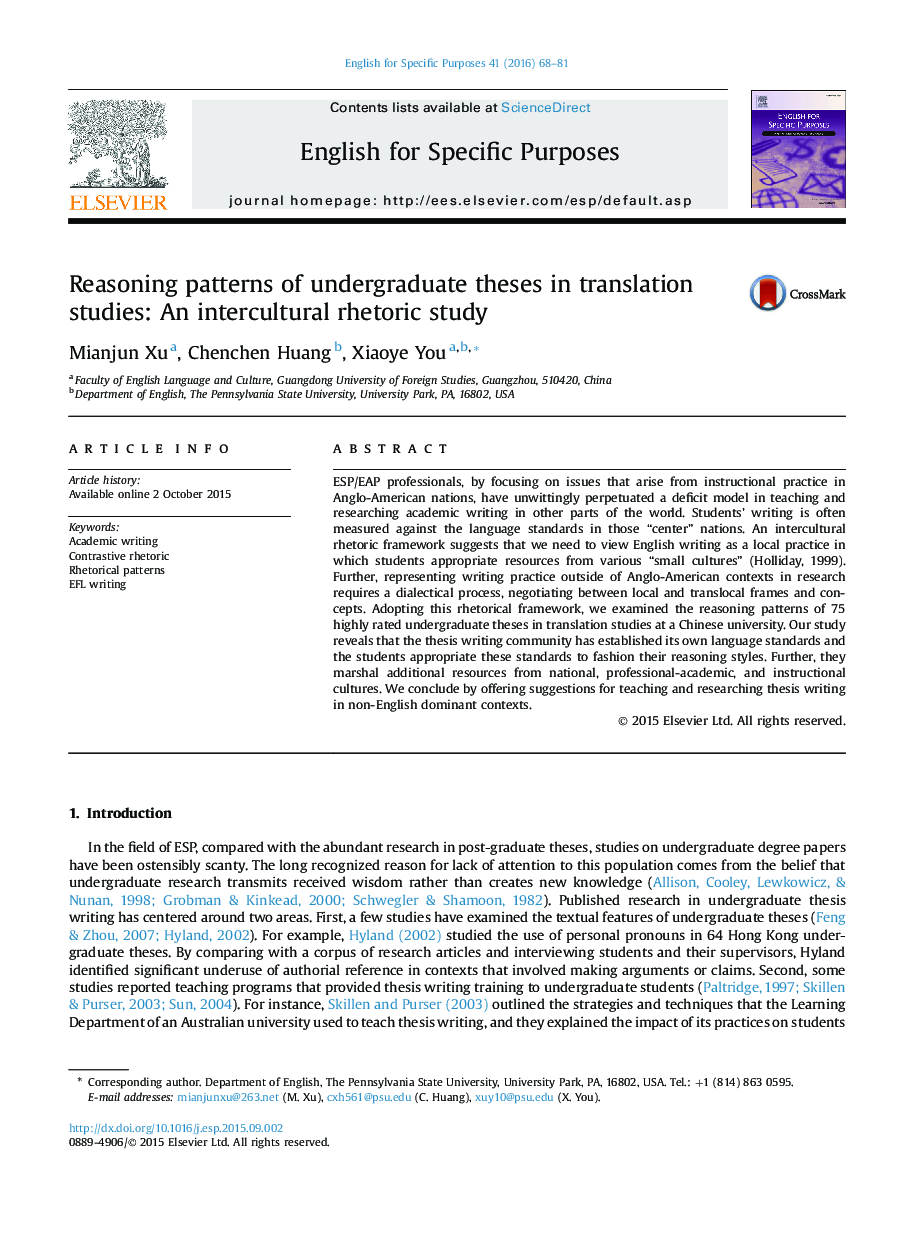| Article ID | Journal | Published Year | Pages | File Type |
|---|---|---|---|---|
| 355306 | English for Specific Purposes | 2016 | 14 Pages |
•Articulates an intercultural rhetoric framework for studying thesis writing.•Examines highly rated undergraduate theses in a Chinese university.•Identifies rhetorical concepts and values in the thesis writing community.•Identifies reasoning patterns in 75 translation critiques.•Students appropriate and marshal resources from various small cultures.
ESP/EAP professionals, by focusing on issues that arise from instructional practice in Anglo-American nations, have unwittingly perpetuated a deficit model in teaching and researching academic writing in other parts of the world. Students' writing is often measured against the language standards in those “center” nations. An intercultural rhetoric framework suggests that we need to view English writing as a local practice in which students appropriate resources from various “small cultures” (Holliday, 1999). Further, representing writing practice outside of Anglo-American contexts in research requires a dialectical process, negotiating between local and translocal frames and concepts. Adopting this rhetorical framework, we examined the reasoning patterns of 75 highly rated undergraduate theses in translation studies at a Chinese university. Our study reveals that the thesis writing community has established its own language standards and the students appropriate these standards to fashion their reasoning styles. Further, they marshal additional resources from national, professional-academic, and instructional cultures. We conclude by offering suggestions for teaching and researching thesis writing in non-English dominant contexts.
